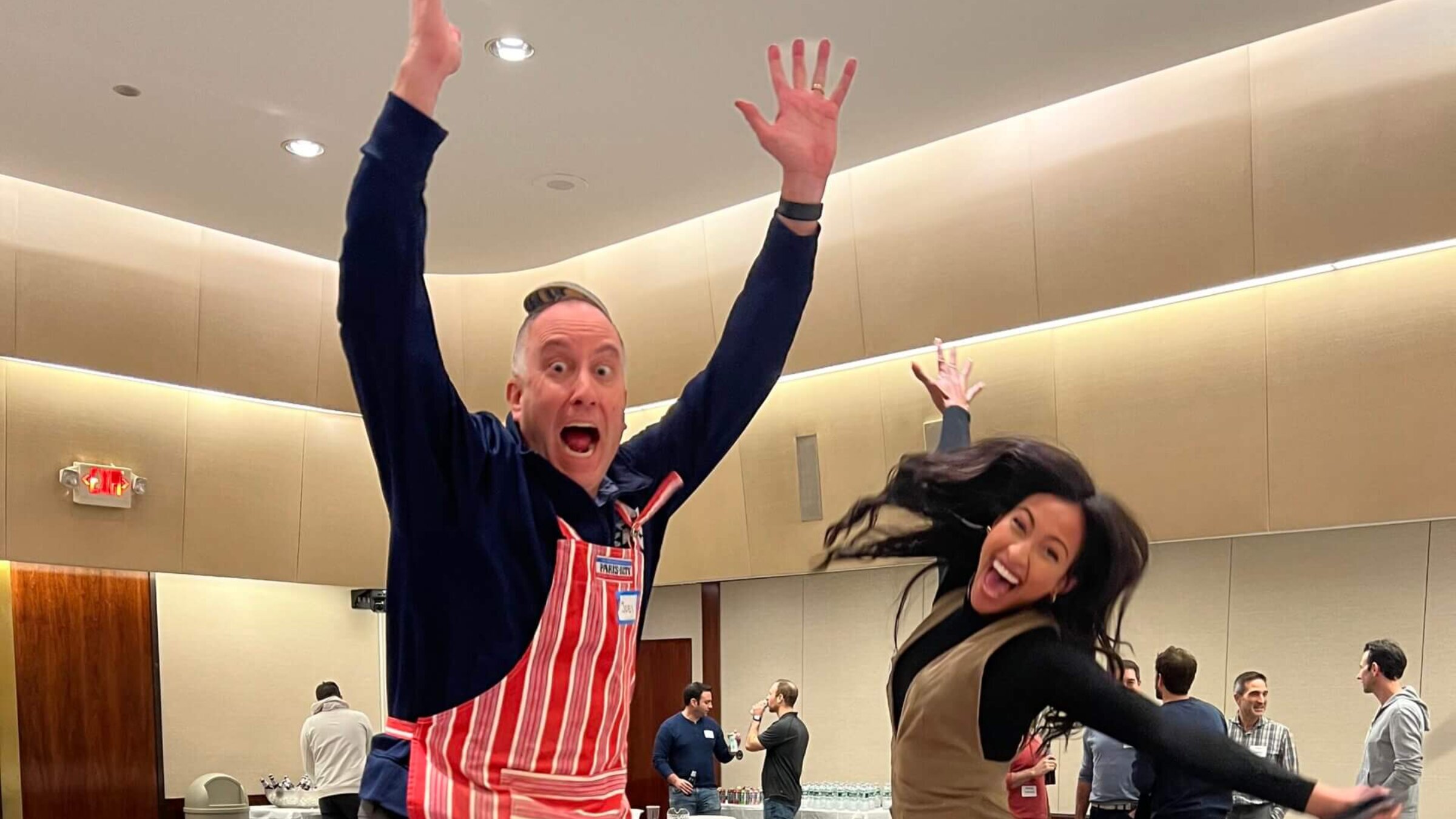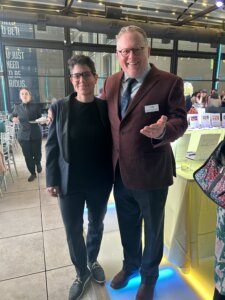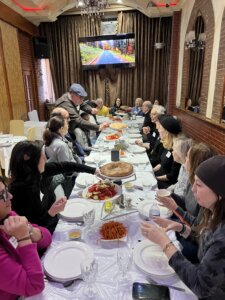At this NYC congregation, food is connecting people to their Judaism
At Temple Shaaray Tefila on the Upper East Side, a program called Manna celebrates Jewish culinary tradition

Through a program called Manna, food has become integral to the Temple Shaaray Tefila experience. Courtesy of Temple Shaaray Tefila
How do you spark — and hold — the interest of a congregation of Reform Jews when, on a national level, just a small percentage attends religious services? How do you foster meaningful connection to Jewish traditions and identity while cultivating pathways for people to find present-day relevance in their practice?
When Rabbi Benjamin Ross ran into one of the Jewish food world’s leading lights, Liz Alpern, at a wedding, he had just been dubbed director of adult engagement at Temple Shaaray Tifila (TST), a Reform synagogue on Manhattan’s Upper East Side. And he knew that food was a powerful way in.
Ross had already had some success engaging a previous congregation in a series of events surrounding food, a particular passion of his. (Before rabbinical school, he briefly attended a Master’s program in Food Studies at NYU.)
Alpern, meanwhile, had done hundreds of one-off food programs at synagogues — many with her Gefilteria co-founder and Gefilte Manifesto co-author Jeffrey Yoskowitz — creating culinary experiences that explore the history, traditions, and modern-day relevance of Ashkenazi gastronomy.

“For the people in our community, one of the primary pathways into Judaism is through food — the way that for other people it can be through prayer or text study,” Ross said. “Food is one of those ways that people authentically feel like they are carrying forward the traditions, the recipes, and the rituals of their parents and grandparents while also putting their own imprint on it.”
At the wedding, Alpern and Ross dove into an animated conversation about the intersection between Jewish culture, religion and food.
“One of the grooms, Sandi Simcha DuBowski, is the ultimate connector,” Alpern said. “So it was almost inevitable that magic would come out of it, and so it did.”
Magic arrived in the form of Manna, a three-year initiative that Ross and Alpern subsequently developed, dedicated to making food an integral part of the TST experience. They would foster the congregation’s sense of Jewish belonging with programs that also provided opportunities for connection. Alpern was named TST’s chef-in-residence.
Ross wasn’t always a paragon of religious practice. “Growing up, smoked-fish Judaism was kind of my denomination,” he said. “Food was always this anchoring presence into my identity of what it meant to be Jewish.”

“My aspiration is you’re bringing people into conversation with our ancient ways, and to make it real for them. Food is such a meaningful way to do that—there’s so much around history and identity. I think it opens a lot of doors for people to walk through and bring it back into their own life.”
The pair launched Manna in the fall of 2023, kicking it off with a walking tour of the Lower East Side. Next, a group visited the Bukharian Jewish neighborhood in Rego Park, Queens, where they ate lunch at a Bukharian restaurant, stopped for sweets at a bakery, and toured the Bukharian Jewish museum — the only one in the world.
TST’s senior rabbi, Joel Mosbacher, an avid baker, started a program called All Rise that included an evening when 30 nursery school dads bonded, made challah, and drank beer while Mosbacher talked about the history of Jewish beer- and bread-making.
The rabbi made challah dough with a bar mitzvah student early on the morning of the ceremony and asked him to think about an intention, which they symbolically braided into the loaf. The challah baked during the service and was served at the Kiddush.
Alpern organized Shabbat dinners with 20- and 30-somethings, and Ross and Alpern developed a series called “Dish,” bringing in a variety of Jewish food entrepreneurs to talk to the congregation.
As they look toward year two of Manna, Ross and Alpern are planning programs such as a trip to the B’Teavon food festival in Georgia, a Cook the Books series that will culminate in the creation of a TST cookbook, plenty more Jewish food pros dishing about their culinary passions, and lots more challah baking with Rabbi Mosbacher.
Ross recalled one of his former rabbis, Leonard Beerman, quoting literary critic and poet Heinrich Heine, who said, “Long after I forget my grandfather’s theology I remember my grandmother’s cooking.”
“It’s not just about coming in and having tasty food at the oneg,” Ross said, “but how is this connecting you to the people who came before you, and what do you want to leave to the next generation?”
“It feels like the culmination of all the things I’ve done over the years,” Alpern said.
“We always felt these programs were missing something, because we’d come in and then we would leave. Finally someone who has the wherewithal to pull this off in a synagogue is taking the opportunity to seize that. I don’t think there’s been a chef in residence at another synagogue who’s a real partner, touching all aspects of the community. It’s a model that other synagogues might want to enact.”
The possibilities are manifold.

















